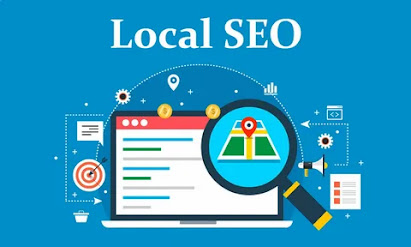In today’s digital age, local search engine optimization (SEO) has become a crucial component for businesses looking to attract customers in their geographical area. Google Local SEO focuses on improving a business’s visibility in local search results, and mastering this strategy can significantly enhance your online presence and drive local traffic to your business. Here’s an in-depth look at how businesses can effectively rank on Google Local SEO and the benefits of doing so.
1. Understanding Google Local SEO
Google Local SEO is a specialized branch of SEO that targets local search queries. When users perform searches with local intent—such as “restaurants near me” or “plumbers in [city]”—Google’s algorithms provide results that are most relevant to their location. Ranking well in these local search results means your business is more likely to be discovered by potential customers in your area.
2. Optimizing Your Google My Business Listing
One of the most critical steps in improving your local SEO ranking is to optimize your Google My Business (GMB) listing. This free tool allows businesses to manage their online presence across Google, including Search and Maps. Key optimization strategies include:
- Accurate Information: Ensure your business name, address, and phone number (NAP) are correct and consistent across all online platforms.
- Business Categories: Select the most relevant categories for your business to help Google understand what services or products you offer.
- Hours of Operation: Keep your hours of operation up-to-date to ensure customers know when to visit or contact you.
- Photos and Videos: Upload high-quality images and videos that showcase your business, products, or services. Visual content can attract more engagement and improve your listing’s appeal.
3. Gathering and Managing Reviews
Customer reviews play a significant role in local SEO rankings. Positive reviews not only build trust with potential customers but also signal to Google that your business is reputable and relevant. To effectively manage reviews:
- Encourage Reviews: Ask satisfied customers to leave positive reviews on your Google My Business listing.
- Respond to Reviews: Engage with customers by responding to both positive and negative reviews. Addressing concerns and thanking reviewers can enhance your business’s reputation.
- Monitor Feedback: Regularly check your reviews to stay informed about customer sentiment and address any issues promptly.
4. Local Keywords and Content
Incorporating local keywords into your website content, meta tags, and descriptions can help improve your ranking for local searches. Conduct keyword research to identify terms and phrases that potential customers might use when searching for your products or services in your area. Create high-quality, locally relevant content that addresses these keywords and provides value to your audience.
5. Building Local Citations
Local citations refer to mentions of your business’s name, address, and phone number on other websites, such as local directories, review sites, and industry-specific platforms. Consistent and accurate citations across various directories help Google verify your business’s legitimacy and improve your local search ranking. Some popular citation sources include Yelp, Yellow Pages, and local business directories.
6. Leveraging Local Backlinks
Backlinks from local websites and businesses can enhance your authority and relevance in local search results. Building relationships with local influencers, media outlets, and industry partners can help you earn valuable backlinks. These local backlinks signal to Google that your business is connected to and trusted within your community.
7. Mobile Optimization and User Experience
With the increasing use of mobile devices for local searches, ensuring your website is mobile-friendly is essential. A responsive design that provides a seamless experience across different devices can improve user engagement and reduce bounce rates. Additionally, optimize your website’s loading speed and navigation to enhance the overall user experience.
8. Monitoring and Analyzing Performance
Regularly monitor your local SEO performance using tools like Google Analytics and Google Search Console. Track metrics such as local search traffic, ranking positions, and user behavior to assess the effectiveness of your SEO efforts. Use these insights to make data-driven adjustments and continuously improve your local SEO strategy.
Conclusion
Ranking well on Google Local SEO is vital for businesses aiming to attract local customers and enhance their online visibility. By optimizing your Google My Business listing, managing reviews, incorporating local keywords, building citations, and focusing on mobile optimization, you can improve your chances of appearing in local search results and driving more traffic to your business. Embracing these strategies will not only boost your local SEO ranking but also contribute to your overall business growth and success.
#Localseo





No comments:
Post a Comment